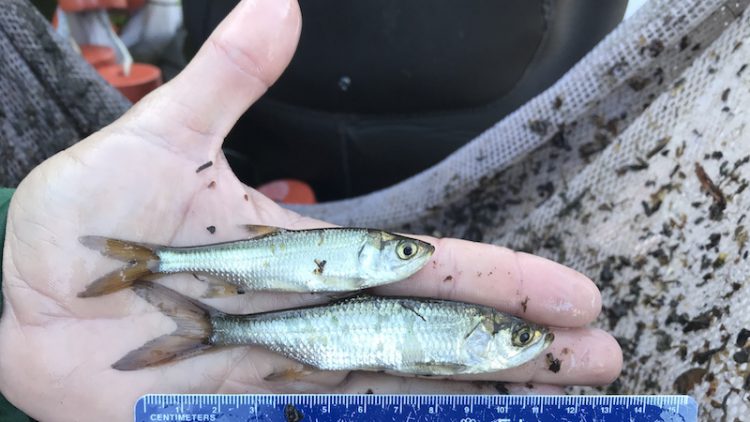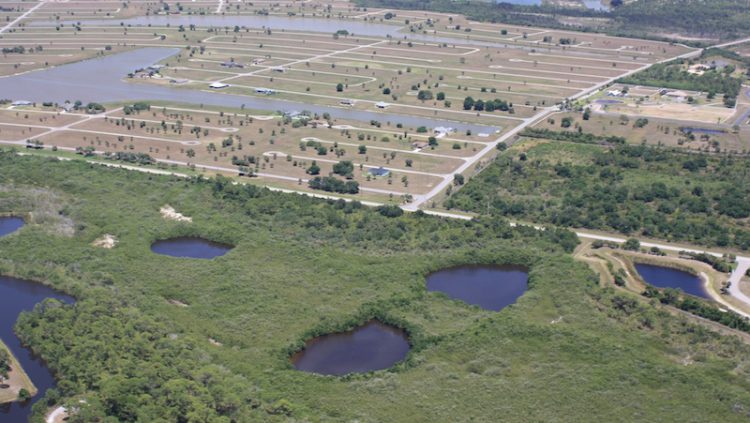Full Title: Knowledge co-production for place-based recreational fishery conservation in Charlotte Harbor, Florida
The project team identified challenges to sustaining sport fish nursery habitats, mapped out realistic management strategies, and planned research that informs management choices.
Lead Investigator: Corey Anderson, Florida Fish and Wildlife Conservation Commission, Corey.Anderson@MyFWC.com
Natural Resource Manager: Shaun Cullinan, J.D., Charlotte County Government
Project Team: David Blewett, Kali Spurgin, and Philip Stevens, Ph.D. (Florida Fish and Wildlife Conservation Commission) and Nicole Iadevaia (Coastal and Heartland National Estuary Partnership)
Federal Program Officer/Point of Contact: Frank Parker (frank.parker@noaa.gov)
Award Amount: $114,058
Award Period: September 2021 – August 2023
Why it matters: The Cape Haze Peninsula in Charlotte Country, Florida contains a series of shallow, coastal ponds that intermittently connect during the wet season. These ponds provide crucial nursery habitat for economically important fishery species such as common snook and tarpon. However, these habitats are vulnerable to development and many have been converted to stormwater detention ponds. There is uncertainty over how best to ensure the persistence of these ponds and the ecological and economic benefits they provide. Place-based habitat conservation and local decision making may be beneficial as it allows resource managers to be specific about management actions.
What the team did: The team conducted a series of four workshops with local policymakers and natural resource managers to reduce uncertainties associated with implementing policies to increase protections for snook and tarpon. The team also conducted a review of the existing literature and relevant databases to help inform a research and application plan.
Summary of outcome: Using information from the workshops and review of literature and databases, the team identified uncertainties that were prohibiting action on land conservation, stormwater management, and fish habitat restoration. The major uncertainties identified were the locations of sportfish nursery habitat and how development would affect these habitats. The team also determined what conservation policies and actions are feasible for this region. Finally, the team developed a research and development plan to guide research to reduce these uncertainties. This team received funding to implement their plan from the Science Program in 2023. Their findings will help inform management decisions that will be made in 2028.
Not applicable
Not applicable
Not applicable
 Official websites use.gov
A .gov website belongs to an official government organization in the United States.
Official websites use.gov
A .gov website belongs to an official government organization in the United States.
 Secure .gov websites use HTTPS
A lock or https:// means you’ve safely connected to the .gov website. Share sensitive information only on official, secure websites.
Secure .gov websites use HTTPS
A lock or https:// means you’ve safely connected to the .gov website. Share sensitive information only on official, secure websites.

